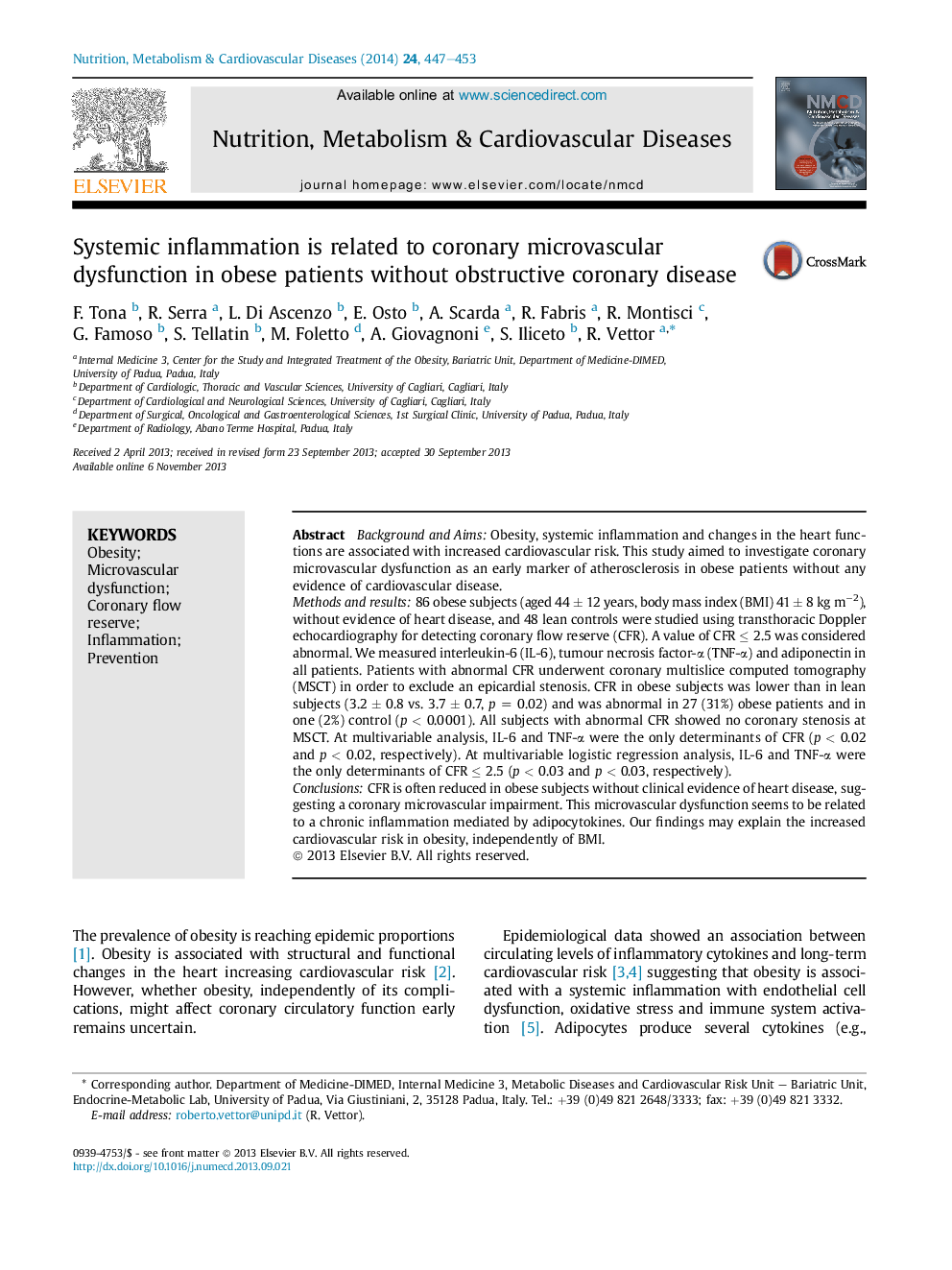| Article ID | Journal | Published Year | Pages | File Type |
|---|---|---|---|---|
| 5996456 | Nutrition, Metabolism and Cardiovascular Diseases | 2014 | 7 Pages |
Background and AimsObesity, systemic inflammation and changes in the heart functions are associated with increased cardiovascular risk. This study aimed to investigate coronary microvascular dysfunction as an early marker of atherosclerosis in obese patients without any evidence of cardiovascular disease.Methods and results86 obese subjects (aged 44 ± 12 years, body mass index (BMI) 41 ± 8 kg mâ2), without evidence of heart disease, and 48 lean controls were studied using transthoracic Doppler echocardiography for detecting coronary flow reserve (CFR). A value of CFR â¤Â 2.5 was considered abnormal. We measured interleukin-6 (IL-6), tumour necrosis factor-α (TNF-α) and adiponectin in all patients. Patients with abnormal CFR underwent coronary multislice computed tomography (MSCT) in order to exclude an epicardial stenosis. CFR in obese subjects was lower than in lean subjects (3.2 ± 0.8 vs. 3.7 ± 0.7, p = 0.02) and was abnormal in 27 (31%) obese patients and in one (2%) control (p < 0.0001). All subjects with abnormal CFR showed no coronary stenosis at MSCT. At multivariable analysis, IL-6 and TNF-α were the only determinants of CFR (p < 0.02 and p < 0.02, respectively). At multivariable logistic regression analysis, IL-6 and TNF-α were the only determinants of CFR â¤Â 2.5 (p < 0.03 and p < 0.03, respectively).ConclusionsCFR is often reduced in obese subjects without clinical evidence of heart disease, suggesting a coronary microvascular impairment. This microvascular dysfunction seems to be related to a chronic inflammation mediated by adipocytokines. Our findings may explain the increased cardiovascular risk in obesity, independently of BMI.
